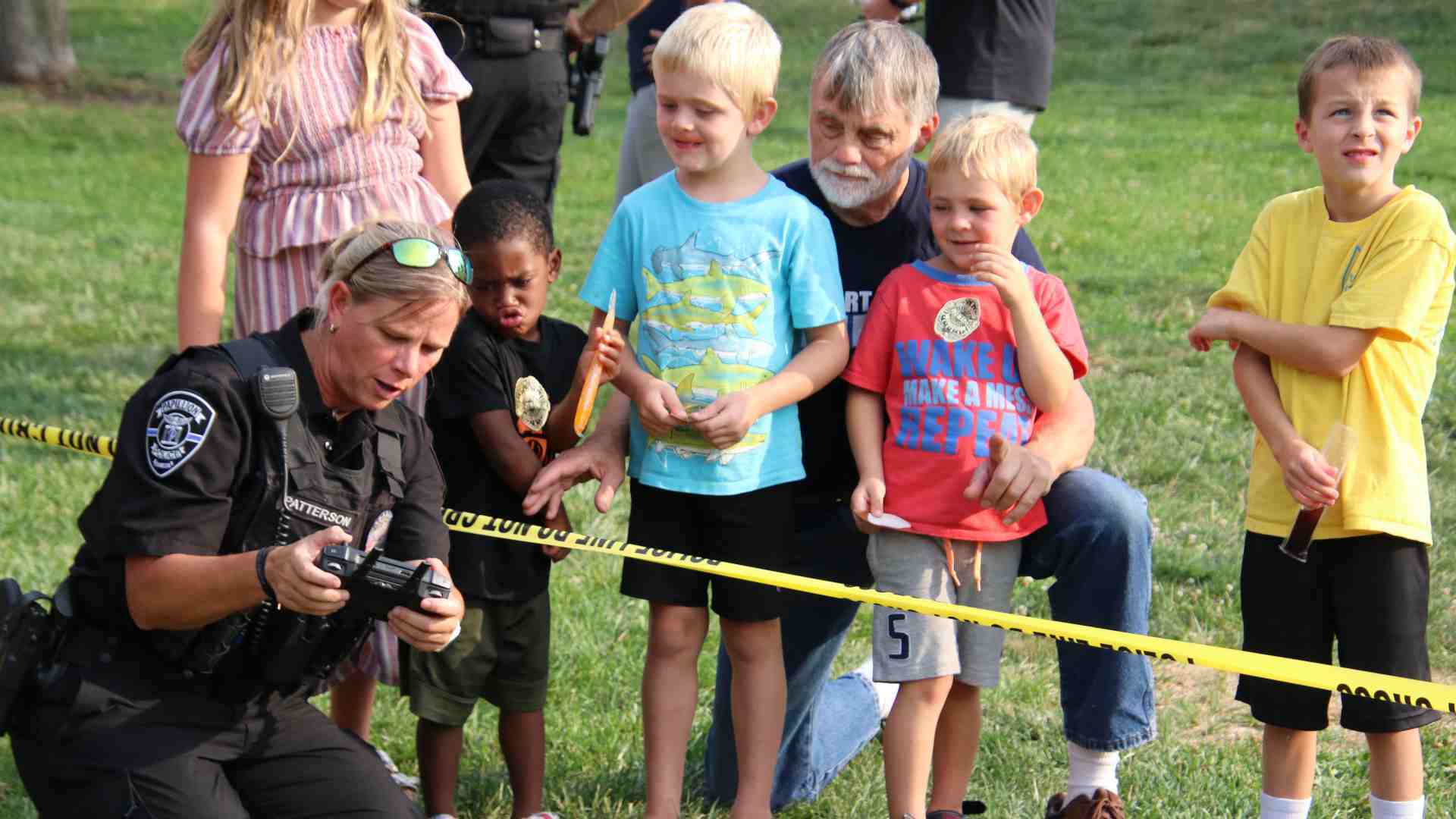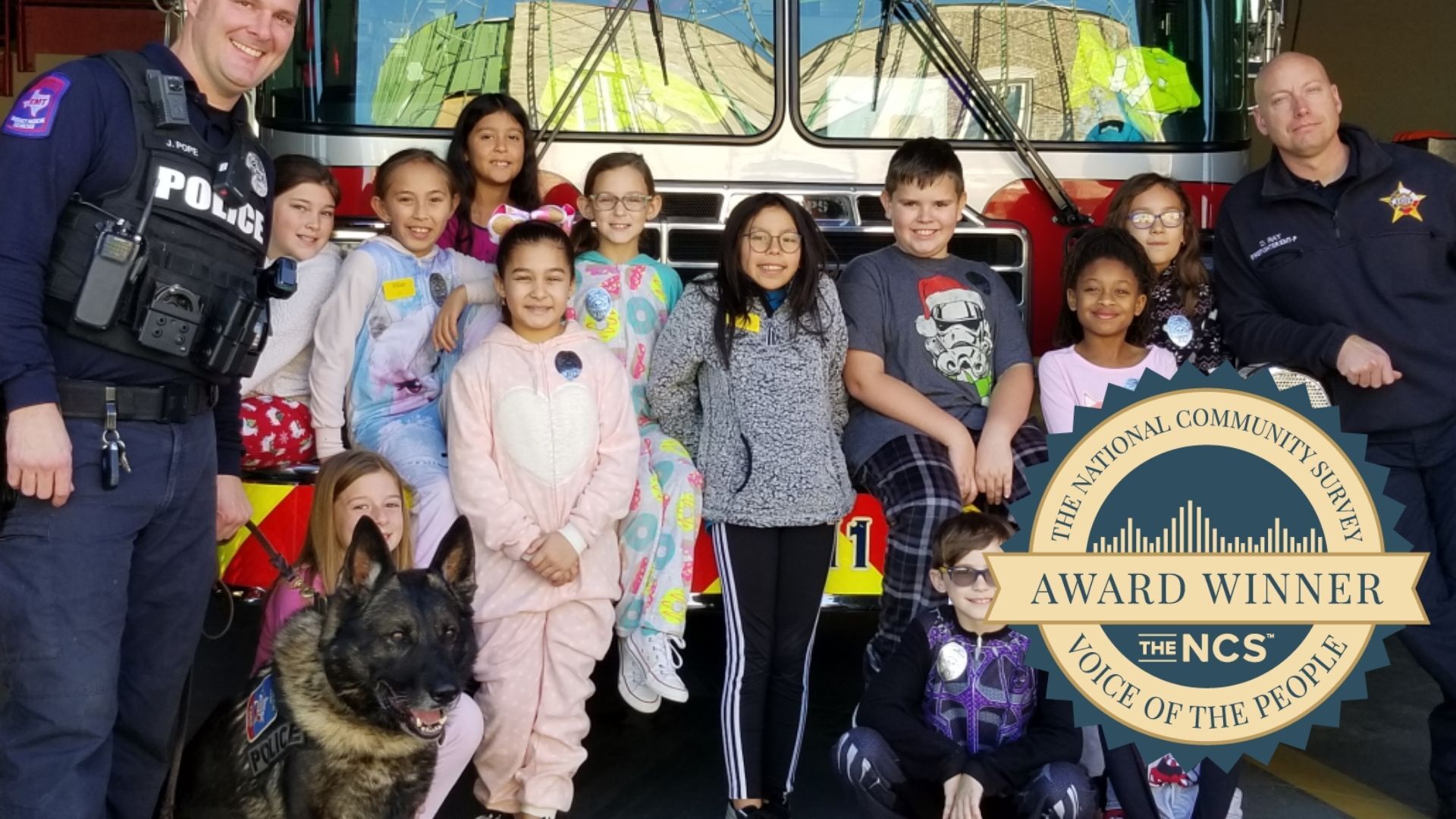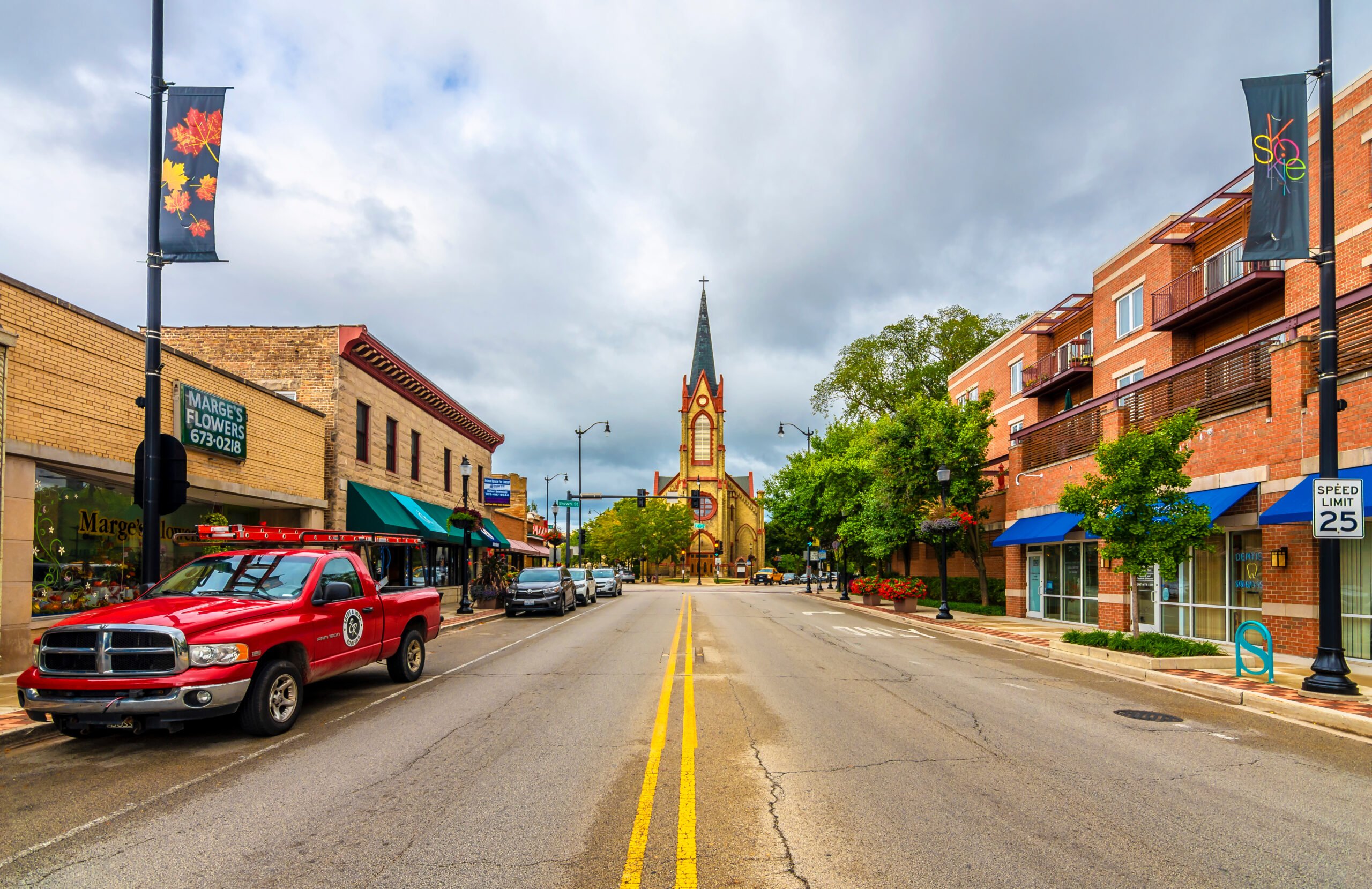Papillion Proves Community Policing Works
By Polco on July 13, 2023

At a Glance
- The Papillion, Nebraska Police Department (PPD) maintained its reputation through the challenging past few years in law enforcement. They also remained staffed while many other departments struggled with retention and recruitment.
- PPD integrates into the community and makes connections with residents starting at a young age through the school system. They are committed to community policing as the City grows.
- PapillIon won a Voice of the People Award (VOP) for Excellence in Safety. The Voice of the People Awards, presented in partnership with the International City/County Management Association (ICMA), are the only national awards given to local governments based on resident feedback.
Law enforcement has weathered a reputation crisis over the past several years. While there have been strong improvements, many agencies are still rebuilding community support and staff levels. Unlike many other agencies, the Papillion Police Department came out of the 2020 turmoil unscathed. Residents stayed supportive of PPD, trust didn’t waver, and their department remained mostly staffed.
How did they do it?

Strategies
Community Policing and Officer-Resident Relationships
The City of around 25,000 makes a concerted effort to maintain Papillion’s small-town culture, sense of community, reputation, and service level. A lot of this work is done through community policing.
 “Community policing has been part of our philosophy. It’s not a program we do. It’s just been who we are,” said Mayor David Black.
“Community policing has been part of our philosophy. It’s not a program we do. It’s just been who we are,” said Mayor David Black.
Community policing is the strategy that fosters relationships between residents and police. It’s more about problem-solving, partnerships, and collaboration than handing out tickets.
Papillion police start building relationships with young Papillion residents while they are still in grade school. Papillion was an early adopter of School Resource Officers, sworn police who work in a school setting, and also continued with the DARE drug resistance program. (Black says the program evolved into teaching kids how to make good decisions, rather than its previous focus solely on drugs.) The police department is also the liaison to the Mayor’s Youth Council, a city council-like group for students.
“Kids can build a real personal relationship with police officers from sixth grade through high school. [Kids learn that] police are people, it's not a law just an enforcement officer,” Black said. “That's huge. You look nationally at what's going on in policing and distrust and polarization—it’s because people don't know each other. They don't trust each other.”
The City also runs a police academy camp with kids. Participants get to see the gear, SWAT, and the canine unit. The kids also get age-appropriate lifelike experiences; they are put in scenarios where they have to de-escalate a situation, just like real officer training.
“The camp is another way to build relationships. But now they can touch and feel and see the equipment,” Black said.
The Police department is involved in other aspects of the community as well, such as health and wellness events like community 5k and 10k runs. Black says officers are required to be out in the community in addition to their normal police work.
“When something is going on at the schools, the police department is there supporting it. When something’s happening at the chamber, they’re supporting it. When something's happening in the rec department, they're there to support it,” he said.

Maintaining Community Culture Amidst Growth
Black says one concern is, as the City grows, new residents may not have that natural connection to Papillion’s culture and sense of community. Papillion has grown nearly 30% since the 2000, and 70% faster than other communities its size.
Until recently, most PPD officers were born and raised in Papillion, so the sense of culture and mission was organic. Today, the City has to be more purposeful in teaching those values, Black says.
Papillion conducted The National Community Survey (The NCS), an assessment that measures resident opinions about their city and government services. Black found job satisfaction and engagement were higher for employees who grew up in Papillion.
“As I dove into it, it really made sense because a lot of what we're talking about is community,” he said. “How do you build community? How do you build trust? Well, if you grew up in that, it's intuitive to you.”
Now during the employee onboarding process, the City and the PPD teach what community means. They discuss the City's history and traditions. They are more purposeful and regularly reinforce what it means to be a part of a community as Papillion grows.

Successes
Community Policing Leads to Excellence in Safety
 Papillion scored above the national benchmark on nearly all safety-related measurements on The NCS. Over 95% of residents said they feel safe in Papillion and 93% approve of the City’s police and sheriff services. A whopping 98% approve of the City’s emergency services and fire services.
Papillion scored above the national benchmark on nearly all safety-related measurements on The NCS. Over 95% of residents said they feel safe in Papillion and 93% approve of the City’s police and sheriff services. A whopping 98% approve of the City’s emergency services and fire services.
They’ve also had fewer staffing issues than most police departments. Nationally, about 77% of law enforcement employees see themselves in a long-term career path with their current organization. The data comes from The National Employee Survey for Law Enforcement (The NES - LE), which measures how police and sheriff employees feel about their jobs. At Papillion, most employees are long-term.
Part of that relates to PPD’s relationship building as well. Black said they recently hired a local woman who was influenced by her school DARE officers. They stayed in touch, and today she is a Papillion police officer.
“That connection is huge, and we start at that sixth-grade level,” Black said. “That's been going on for 25 years plus.”
Popular posts
Sign-up for Updates
You May Also Like
These Related Stories

Fate, Texas’s Successful Community Policing Programs Improve Public Safety

How Skokie’s Award-Winning Public Safety Campaign Led to Safer Streets

